Sustainability and a Better Tomorrow – For ALL
The New Jersey Chapter’s Environmental and Social Justice Committee promotes social, racial and economic justice for low-income and overburdened communities throughout New Jersey. We will support these communities in their efforts to achieve equality and equity so they can live in an environment free from environmental racism, social injustice, climate injustice, economic injustice and discrimination. We are dedicated to fulfilling our mission within the foundation of the Sierra Club and the principles of Justice, Equity, Diversity and Inclusion.
To achieve these goals we are working to build strong, resilient working relationships with other community leaders and grassroots organizations. We will build our collaboration from the ideals we share, and collaborate using our shared knowledge, expertise, resources and collective opportunities.
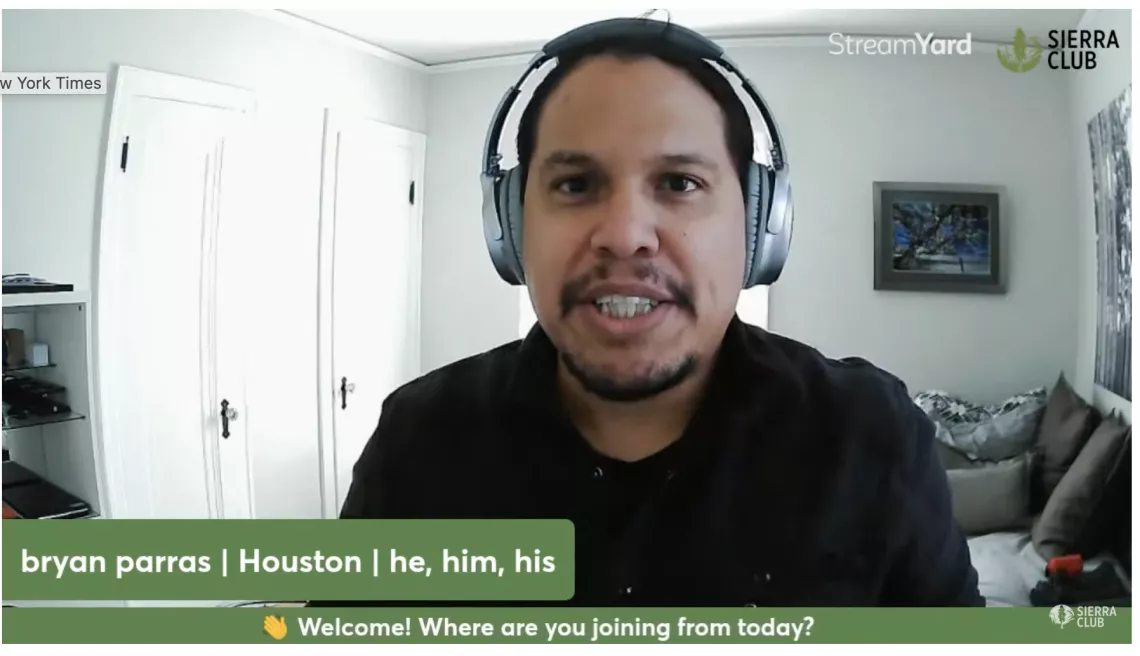
Did you know that there are deadly loopholes in the EPA and state Clean Air Act rules? The Startup, Shutdown, and Malfunction loopholes allow polluters to ignore their permitted emission limitations. WATCH VIDEO
Why Is Environmental Justice Important to Us?
The Sierra Club is focused on protecting the earth’s resources and helping people to enjoy our wild places. We acknowledge that environmental action in New Jersey has a history of discriminatory impacts. We are working to ensure that our conservation efforts address the disproportionate burdens of environmental degradation and pollution that are experienced by low-income communities and communities of color.
Across the state, immigrant, Latinx, Black, and Indigenous residents have endured decades of discriminatory housing policies, leading their communities to be surrounded by heavy industry and used as dumping grounds for hazardous waste. Asthma mortality rates in New Jersey are three times higher among Black and Latinx residents, who are disproportionately exposed to the polluting industry in New Jersey’s cities.
In Newark and Camden — some of the nation's poorest cities — colossal waste facilities operated by the international energy giant Covanta emit the largest amounts of lead of any municipal solid waste incinerator in the country. New Jersey also faces a lead-contaminated water crisis that has plagued Newark and other municipalities, especially in communities of color that often receive fewer resources and attention. We believe that social, racial, economic, and environmental justice are intertwined.
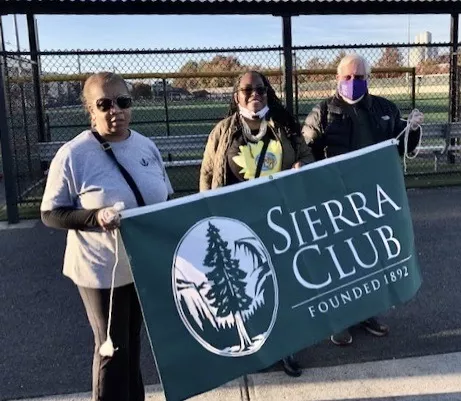
Additional Reading:
Newark Before the Comeback: A City Marked by White Flight, Poor Policy
Health Indicator Report of Deaths due to Asthma
The 50 most miserable cities in America, based on census data
U.S. Municipal Solid Waste Incinerators: An Industry in Decline
In New Jersey, 186K people are about to find out their drinking water is coming through lead pipes
Health, Safety, and Justice for People and the Planet
Environmental action, just like the earth and its ecosystems, thrives on diversity. The New Jersey Chapter’s Environmental and Social Justice Committee advocates for social, racial, and economic justice for low-income and overburdened communities in our state. We will uplift and support these communities in their fight for an environment free from environmental racism, discrimination, and social, racial, and economic injustice. We are dedicated to fulfilling our mission within the foundation of the Sierra Club and the principles of justice, equity, diversity and inclusion.
We collaborate with with community leaders and grassroots organizations that have paved the way for environmental justice. We are working to provide accessible educational resources, champion legislation that protects people and the planet, and help ensure that communities are equipped to take action against environmental issues. We will build our partnerships from the ideals we share, and collaborate using our shared knowledge, expertise, resources, and collective opportunities. We stand in solidarity with communities facing the impacts of climate change, environmental degradation, housing and transportation inequality, and toxic pollution of our land, water, and air.
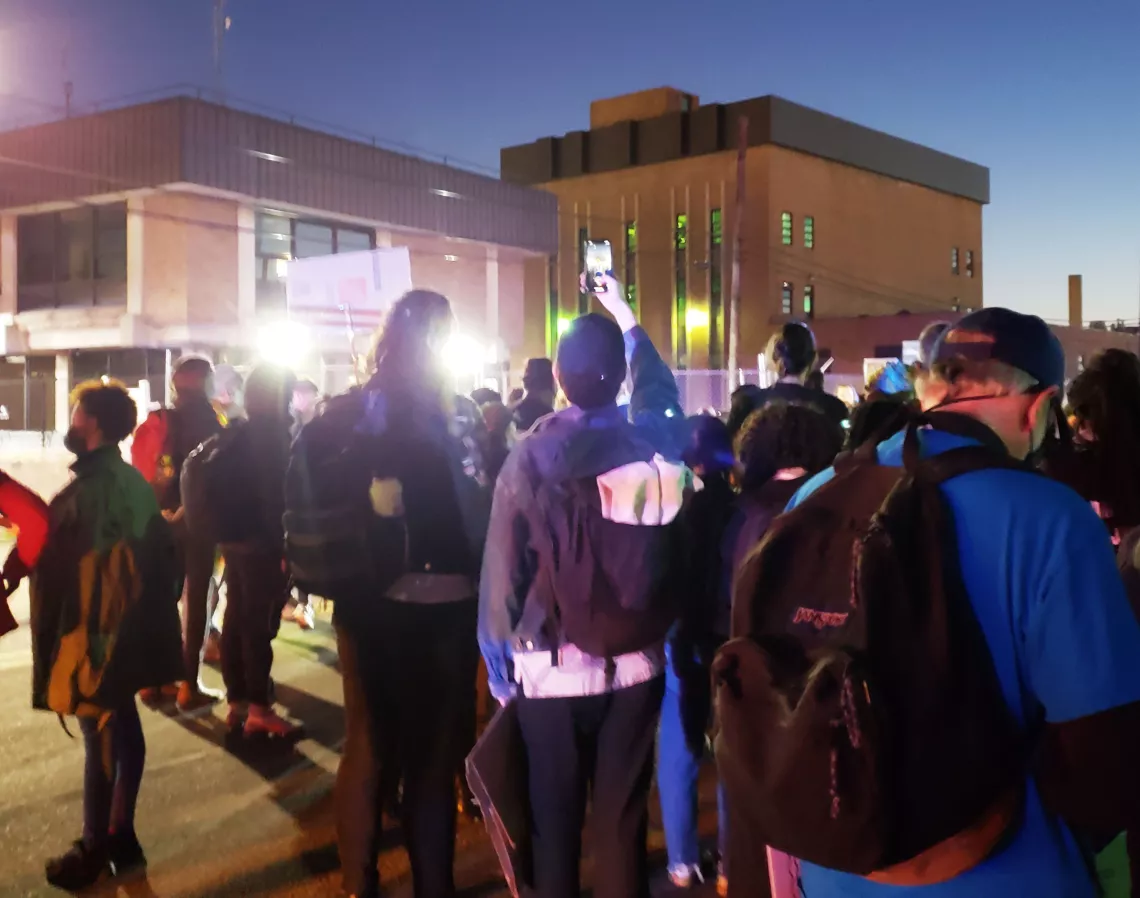
Working for an Environment Free From Pollution and Toxic Contaminants
Having clean air, water, and soil is a human right, no matter what zip code you live in. A history of industrialization runs deep through New Jersey, and with it, a legacy of noxious pollutants. From landfills, incinerators, and chemical manufacturing companies to contaminated wastewater from fracking and other fossil fuel projects, our state has a toxic past, but the burdens have not fallen uniformly on all residents. Industrial, governmental, and commercial operations or policies have consistently and deliberately exposed our state’s low-income communities and communities of color to a disproportionate number of environmental and public health stressors. Our most financially at-risk residents are also forced to live among factories and warehouses, power plants, chemical refineries, garbage incinerators, and hazardous Superfund sites.
The New Jersey Chapter aims to amplify the voices of historically marginalized groups, and elevate communities’ lived experiences through environmental education, policy, and action. We are uniting with local organizations and communities on the frontlines of environmental injustice to oppose one of the dirtiest waste facilities in the state. To address these issues, we are supporting actions that bolster the state’s clean energy future and legislation that regulates hazardous pollutants in the air and water.
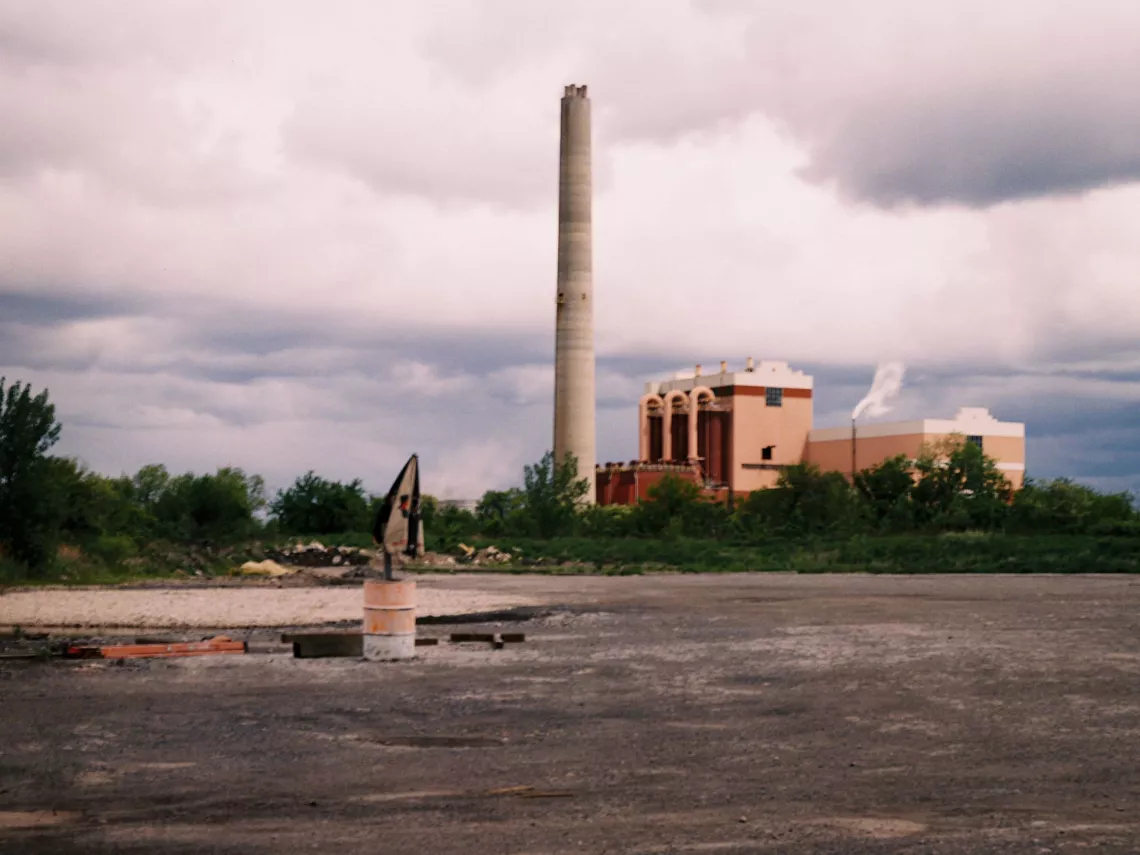
Additional Reading:
People before Profit: Reinforcing Opposition to Covanta Incinerator in Camden following Public Hearing
Local activists log a victory in Newark’s Ironbound
New Jersey’s Last Operating Coal Plant Demolished, Clearing Path for Clean Energy
DEP Adopts Critical Air Contamination Rule
Major PFAS Bill Released from Senate Environment Cmt.
Housing and Transportation Justice
New Jersey is the most densely populated state in the country, which has created a strain on our air quality and access to affordable housing, among other critical environmental issues. The New Jersey Chapter affirms the need for safe, sustainable, and affordable housing with access to public transportation throughout all municipalities. There are significant reductions in urban sprawl and greenhouse gas emissions when people can afford to live near where they work, particularly in transit-rich, walkable urban areas.
Affordable housing, transportation access, and the climate crisis are interwoven issues. Low-income communities and communities of color face high housing cost burdens and experience the effects of historical racist policies that have perpetuated separate and unequal neighborhoods. Our state also has the highest number of affordable housing units subjected to sea-level rise, which scientists predict will surge in the coming decades.
The New Jersey Chapter is working to promote the equitable distribution of affordable housing in all parts of the state. We are lobbying our legislators to advocate for regulations that protect tenants from mold-contaminated rental housing. Our Transportation Committee supports initiatives that improve public transit infrastructure, and has been an important part of the campaign to fund electric school buses.
Access to Nature
In the late 19th and early 20th centuries, a burgeoning conservation movement sought to set aside land in the United States for recreation. We acknowledge that this movement, which gave birth to the Sierra Club, was forged from the displacement and dispossession of Indigenous peoples from their ancestral lands. Black communities, Indigenous communities, and communities of color have been violently excluded from outdoor spaces, and continue to endure the traumatic burden of fighting for their right to a healthy environment. Even today, communities of color are more than three times as likely to live in nature-deprived places, which means they have less access to forests, streams, and other natural areas than white communities.
We believe that access to nature is an environmental justice concern, not only for equity but also to broaden and empower the base and leadership of the environmental movement. The Sierra Club’s New Jersey Chapter coordinates Group Outings across New Jersey’s natural areas, which are free and open to the public. We hope to break barriers and foster an environment of inclusivity by sparking conversations about the accessibility of enjoying nature. In our efforts to inspire a new generation of diverse environmentalists, we provide safe and fun wilderness trips for youth with limited access to the outdoors through the New Jersey Inspiring Connections Outdoors (NJ ICO) program.
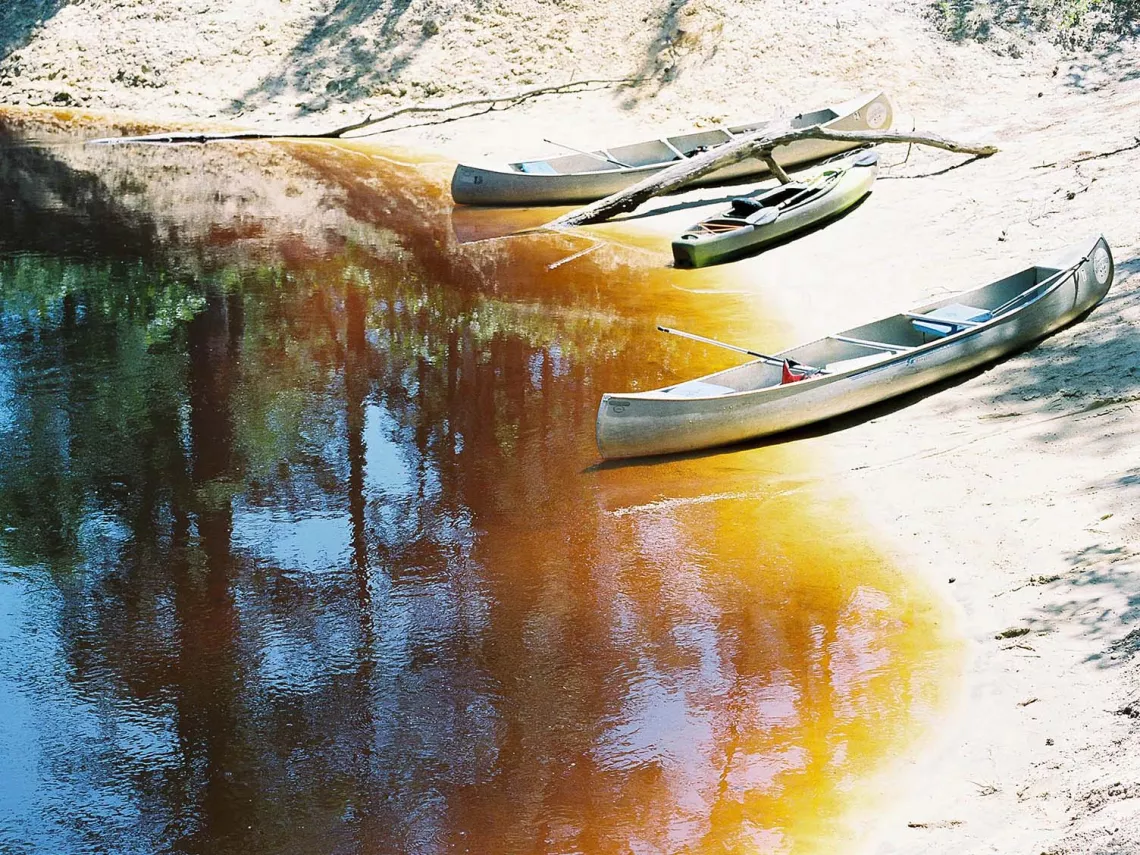
Additional Reading:
World Population Review: State Rankings
How Cities Can Tackle Both the Affordable Housing and Climate Crises
Causes and Consequences of Separate and Unequal Neighborhoods
NJ has the most affordable-housing units exposed to sea-level rise, report says
Bill Track 50
Electric Ticket To Ride: Gov. Murphy Signs Electric School Bus Bill
Pulling Down Our Monuments
The Nature Gap
Join Us!
Alongside communities and grassroots organizations on the frontlines of environmental injustice, we are currently planning environmental justice-focused panels and educational events. Our collaborations will allow for the development of environmental justice knowledge so that communities can self-advocate and empower themselves. Stay tuned for more information!
If you are interested in joining the New Jersey Sierra Club’s Environmental and Social Justice Committee, please contact Renée Pollard, Chair.
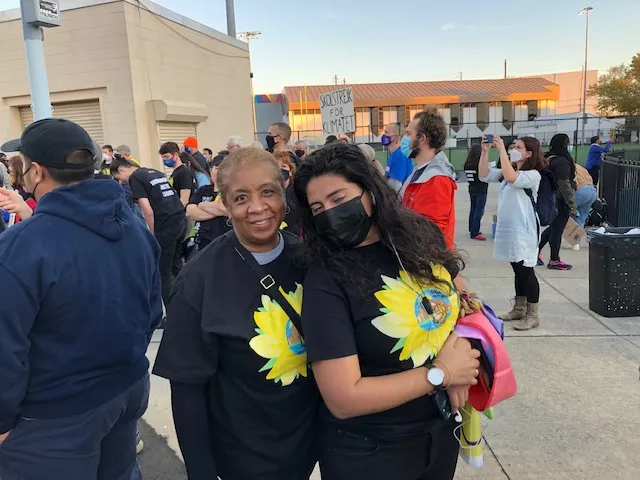
Read More About Environmental Justice
- The Sierra Club’s Environmental Justice Policy
- The 17 principles of environmental justice, drafted and adopted by delegates to the First National People of Color Environmental Leadership Summit held on October 24-27, 1991.
- EPA's involvement in the Environmental Justice Movement and the major events leading up to it.